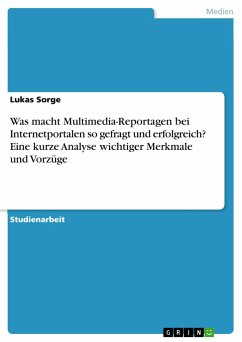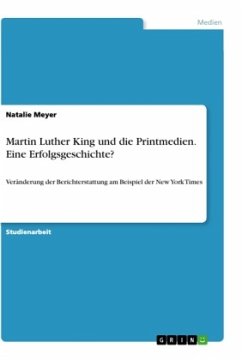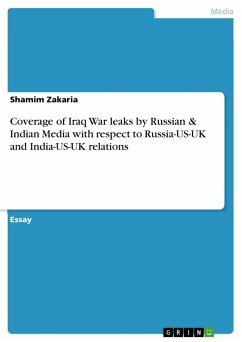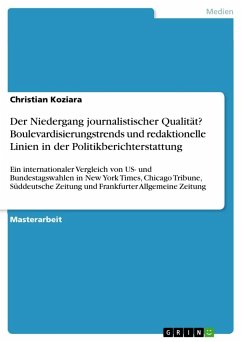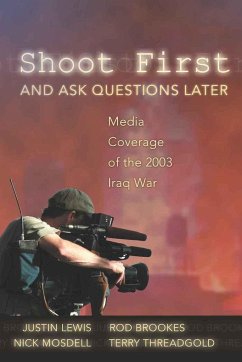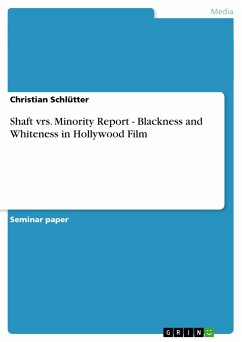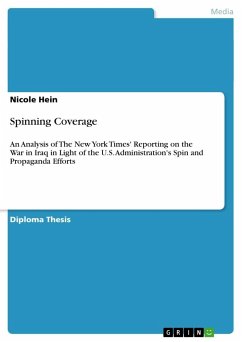
Spinning Coverage
An Analysis of The New York Times' Reporting on the War in Iraq in Light of the U.S. Administration's Spin and Propaganda Efforts

PAYBACK Punkte
0 °P sammeln!
Diploma Thesis from the year 2008 in the subject Communications - Media and Politics, Politic Communications, grade: 1,0, University of Applied Sciences Osnabrück, course: Kommunikationsmanagement, language: English, abstract: The ongoing war in Iraq was precipitated by a flurry of spin and propaganda originating from the White House. In September 2002, the U.S. administration kicked off a communication campaign almost unprecedented in its dimensions, in order to convince Congress and the public of a military strike in Iraq; a campaign so skillfully woven that a huge part of the U.S. media in...
Diploma Thesis from the year 2008 in the subject Communications - Media and Politics, Politic Communications, grade: 1,0, University of Applied Sciences Osnabrück, course: Kommunikationsmanagement, language: English, abstract: The ongoing war in Iraq was precipitated by a flurry of spin and propaganda originating from the White House. In September 2002, the U.S. administration kicked off a communication campaign almost unprecedented in its dimensions, in order to convince Congress and the public of a military strike in Iraq; a campaign so skillfully woven that a huge part of the U.S. media industry seemed to forget its 'watchdog'-role and went out of its way to surpass the others in patriotism, critical coverage be damned. In early 2003, however, many of Washington's claims and assertions were slowly beginning to get publicly questioned or downright proven wrong by experts and the media, especially when no weapons of mass destruction were found in Iraq after extensive searches. A question surfaced that had not been explicitly asked in the months before the war: the question whether the administration might have misled the American people into war by exaggerating the threat Saddam Hussein posed to the world and, in order to do so, might even have manipulated evidence. However, a question just as important is, whether the American media lost sight of its obligations in the run-up to war, and by temporarily neglecting its standards of objectivity and neutrality gave the U.S. administration the platform it needed to actually convince the public of the necessity of military action. This paper's primary hypothesis will be that not even a critically acclaimed newspaper like The New York Times was able to evade the White House's spin and propaganda, but that the coverage got more critical as time went by, even though there was little public self-reflection on behalf of the journalists and editors. To analyze a possible shift in attitude and reporting, editorials and front page articles about Iraq that included references to the White House's communication campaign and were published between August 2002 and July 2003 were quantitatively and qualitatively examined.




